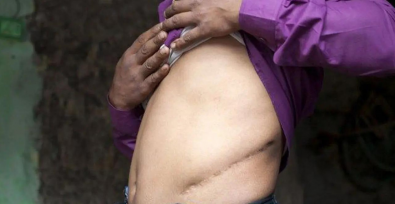Morocco has passed a new law criminalizing violence against women, but will it have any real effect in preventing forced marriages?
According to many local activists, the answer is no.
Take Action: Join the fight against forced child marriage.
Known locally as the Hakkaoui Law, named after family affairs and women’s issues minister Bassima Hakkaoui, the legislation criminalized “harassment, aggression, sexual exploitation or ill treatment of women.” It also includes measures stipulating punishment for people who try to force someone into a marriage using violence or the threat of violence.
Aljazeera reports that prescribed punishments include prison terms ranging from one month to five years and fines from $200 to $1,000.
However, activists say there are far too many loopholes in the law that would still allow child and forced marriages to continue.
As Stephanie Willman Bordat, co-founder of rights group Mobilising for Rights Associates, pointed out, “How are women supposed to be protected when there is no definition of what is forced marriage?”
Thomson Reuters Foundation reports:
“For some women, choice doesn’t exist. When you have family pressure, social stigma on single women, poor economics … all of these things – so what does forced look like?” Bordat told the Thomson Reuters foundation by phone from the capital, Rabat.
“The law also places the onus on girls to report their own marriages, who may face reprisals from their husband and family as a result,” she said in an emailed statement.
In 2014 Morocco overhauled a law that let rapists escape punishment if they married their victims. The change followed the suicide of a 16-year-old girl forced to marry her rapist.
Activists said Tunisia, which passed its own law protecting women against violence last year, had set a strong example. Unlike Morocco, Tunisia explicitly outlaws marital rape.
Human Rights Watch has also issued a statement criticizing the law as it lacks financial assistance for survivors and does not require the government to provide support to victims.
Still, Suad Abu-Dayyeh, a Middle East expert with the global advocacy group Equality Now, welcomed the law as a “positive step.”
However, she stressed that implementation is key.
“We want to see the implementation of this law – forced and child marriages are very much happening in Morocco.”







Freedom United is interested in hearing from our community and welcomes relevant, informed comments, advice, and insights that advance the conversation around our campaigns and advocacy. We value inclusivity and respect within our community. To be approved, your comments should be civil.
Forste marriages is child abuse and marital abuse of a minor and barbaric cruel it must stop
I hope the King will insist that this law be enforced to its fullest extent with the maximum penalties provided.
Some young men are also forced into marriage to satisfy the wishes of their parents., who often have financial control over their sons.We should take a stand against all forced marriages everywhere. At a Moslem wedding in Australia I attended, the groom was asked once if he wished to marry the bride, while she was asked 3 times if she wished to marry the groom, thus giving her a chance to decline.
It is time to stop child sex abuse forcing them in marriage
women have to be respected, they have lives that are born to grow, they die without saying that we are all born of a woman, that is to disrespect a woman, it is as if they had disrespected their own mother